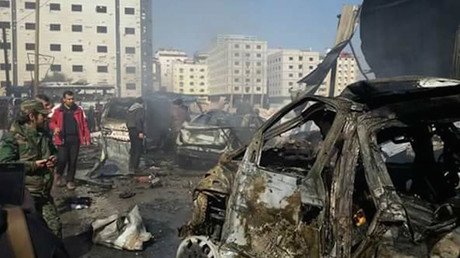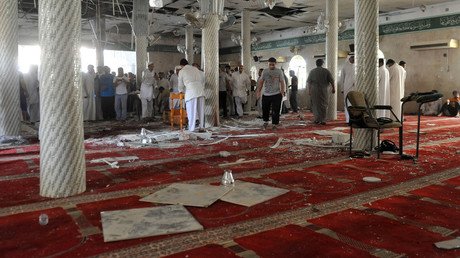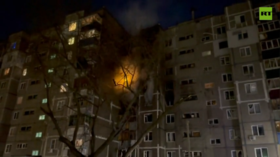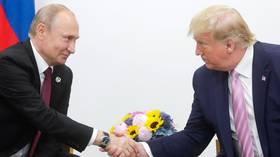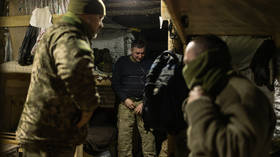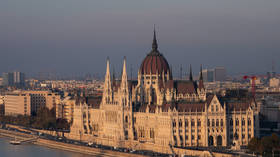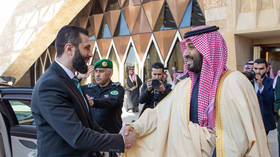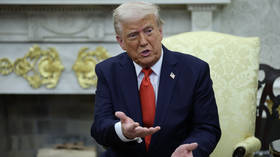'Saudi-backed Wahhabist ideology: The root cause of terrorism’
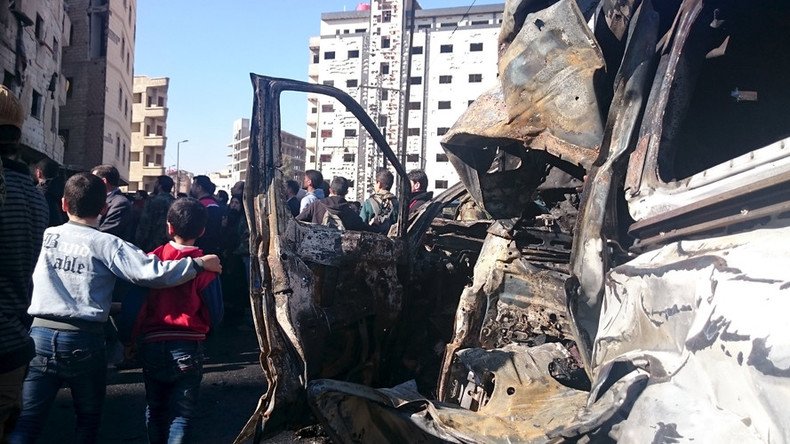
Until now the US didn’t seem to be ready to exert the necessary pressure on the Saudis to stop the export of the Wahhabist takfiri ideology which Saudi Arabia tries to spread through madrasas, says Middle East expert Ali Rizk.
RT: Despite the peace talks, the ongoing violence is still devastating Syria. So, are these negotiations therefore worthless?
Ali Rizk: I think in the negotiations there will be very little room to make progress, as long as we don’t address the root cause of terrorism. Now the root cause of terrorism, like this attack in Damascus, remains the Wahhabist takfiri ideology, which is exported by Saudi Arabia. Until now Saudi Arabia and its Western allies, notably the US, have not seemed to be ready to exert the necessary pressure on the Saudis in order to stop this export of the Wahhabist takfiri ideology which Saudi Arabia tries to spread through the madrasas.
As I said, more of this will continue. The problem, be it from ISIS or be it from other groups like Al-Nusra, in the end it comes down to one main problem which is the Wahhabist salafi ideology. I don’t know if you are also aware there was a significant statement made by this democratic member of the Senate, Senator Chris Murphy on Friday when he said that this issue is a fundamental issue that must be addressed. The Saudis and their support for Wahhabism...
RT: The Syrian opposition and government representatives haven't held direct talks. How important is it that they do?
AR: I think that trying to reach a solution is, of course, something positive. Possibly, one of the aims of this particular attack by the terrorist was to derail the talks to prevent any progress from being achieved. Talking is important, but at the same time I believe that these bombings once again stress that the Syrian government and its allies - like Russia, Iran - are very much correct when they say that the priority must be terrorism, then we address other issues like the constitutional amendments, elections, the fate of Syrian President Bashar Assad. The Syrian government and Russia and Iran have always maintained that fighting terrorism comes first, then we address the other matters. That’s contrary to the position taken by some of the Syrian opposition factions. So, I believe that today’s events might convince some that it is necessary to address the root causes and to address the most urgent problem which is that of terrorism, then resorting to other matters...
“There are other opposition groups who would have liked to talk with the Syrian government about a political solution in Syria a long time ago, but they have been blocked from the political process,” says Karin Leukefeld, Middle East journalist.
RT: Islamic State (IS, formerly ISIS/ISIL) has claimed responsibility for this terrorist attack. Does the timing of the blast surprise you?
AR: Actually, what caught my attention is that we had an attack just on Friday which also targeted a Shia mosque in Saudi Arabia. I am not sure if ISIS claimed the responsibility or not. But in the end it is the same school of thought: takfiri terror. Now we have ISIS reportedly going ahead and bombing a Shia shrine in Syria, the Zeinab shrine. There are many Sunnis who also visit this shrine. It reminds me very much of the practices which used to be resorted to by Abu Musab al-Zarqawi, the former leader of al-Qaeda in Iraq when he attacked the Shia shrines in Samarra in Iraq with the aim of igniting Shia – Sunni strife. I believe that what we have witnessed recently - be it in Saudi Arabia on Friday or particularly this attack today in Sayeda Zeinab shrine is considered one of the holiest shrines - I think the aim there also could be to provoke an angry Shia reaction and hence create Sunni-Shia strife which would in the end serve the interests of ISIS and Al-Nusra. And I have to say it would also in one way or another serve the interest of Saudi Arabia and the Wahhabist clerics. I think it is significant to show that we have Shia now being targeted in more than one place in the Muslim world.
The statements, views and opinions expressed in this column are solely those of the author and do not necessarily represent those of RT.
